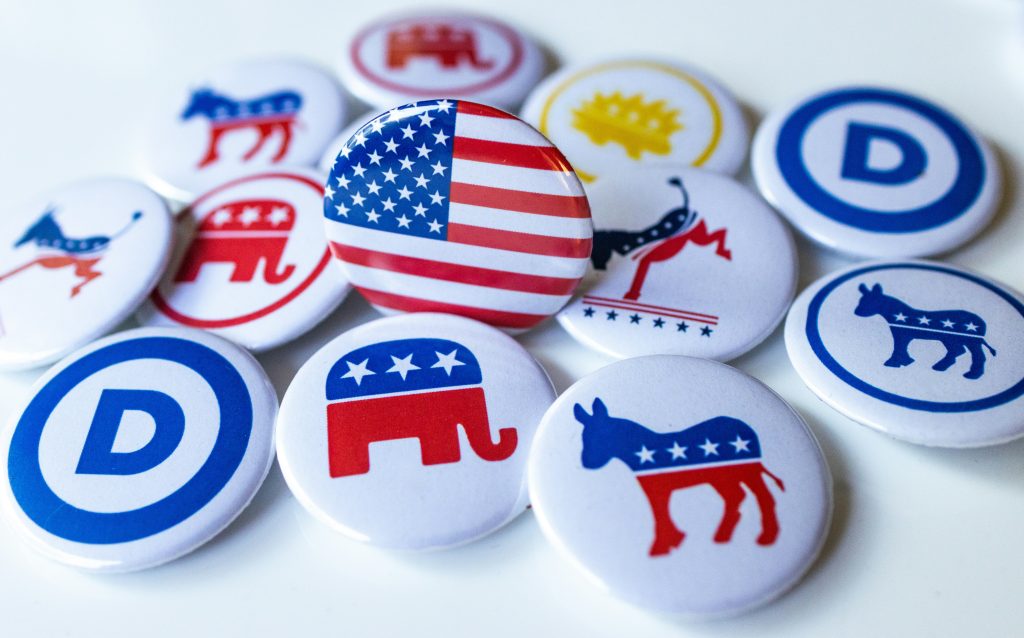Michigan: A State in Motion – From Hockey Triumphs to Winter Prep and Economic Shifts
## Michigan’s Diverse Landscape: A Year in Review
Michigan, the Great Lakes State, has seen a flurry of activity in recent times, spanning diverse sectors from sports and governance to the economy and everyday life. Let’s delve into the key developments that have shaped the state’s narrative.
## Sporting Success and Strategic Investments
The world of sports has provided a significant boost to Michigan’s morale. Western Michigan University’s Bronco hockey team, under the continued leadership of its head coach, is gearing up for another exciting season, promising thrilling matches and potential victories. Meanwhile, the commitment to retaining top talent is evident, as evidenced by the recent contract extension for a prominent figure in the state’s sporting scene, securing his services for years to come at a substantial salary exceeding $400,000 annually. This financial investment reflects not only the value placed on athletic prowess but also the broader economic impact generated by successful sports teams.
## Navigating the Winter Months and Prioritizing Safety
As Michigan braces for its characteristically snowy winters, a focus on safety and preparedness is paramount. With snowfall an inevitable part of the Michigan landscape, residents are reminded of the importance of taking precautions during winter months. Clearing snow from driveways, sidewalks, and porches is a crucial task to ensure safety and prevent accidents. This underscores the importance of community responsibility and personal vigilance during challenging weather conditions.
## Legislative Actions and Economic Outlook
Michigan’s political landscape has been equally dynamic, with the state’s Senate Democrats highlighting their contributions to resolving critical issues confronting the state’s citizens. This emphasizes the ongoing efforts of policymakers to tackle challenges ranging from infrastructure to social services. The state’s Department of Agriculture and Rural Development (MDARD) has also taken a proactive approach, promoting food safety awareness among residents as a top priority for public health and well-being. This ongoing commitment towards enhancing food safety practices emphasizes the state’s dedication to protect its citizens and ensuring the safety of the food supply chain.
## Looking Ahead: A State of Potential
Michigan’s story is one of contrasts, weaving together athletic achievements, winter preparations, and ongoing political and economic developments. This multifaceted narrative underscores the state’s resilience and its diverse range of activities and concerns. As the state progresses into the new year, the themes of collaboration, strategic investments, and community-driven initiatives will continue to play crucial roles in shaping the future of Michigan. The coming months promise to deliver further insights into the evolution of this dynamic state.
Tags: agriculture, Economy, food safety, Hockey, Investment, Legislation, Michigan, politics, Sports, winter safety
Impending Government Shutdown Sparks Political Turmoil in Washington
As the clock ticks down, the specter of a federal government shutdown looms large over Washington D.C., creating a turbulent atmosphere as Congress grapples with budgetary disagreements. With a tight deadline approaching, lawmakers are locked in a fierce battle over a new spending bill that could prevent the government from ceasing operations.
The House of Representatives, under the leadership of Speaker Mike Johnson, is attempting to navigate through a minefield of political opposition. His proposed government funding bill, which is backed by former President Trump, faces resistance not only from Democrats but also from factions within his own party. This dual front of opposition complicates what should be a straightforward process of securing funding to keep the government operational.
The stakes are high, as the implications of a shutdown could ripple through the economy and impact millions of Americans who rely on government services. Additionally, with the 2024 election year on the horizon, the political ramifications of a shutdown could further complicate an already charged atmosphere. Larry Allen, a political analyst, noted that the intersection of election politics and a potential shutdown could lead to unforeseen challenges for lawmakers trying to maintain public support.
In a related development, Republicans are also pushing a proposal aimed at tightening voting regulations, ensuring that only American citizens can participate in federal elections. This move has reignited debates over voter rights and accessibility, proving once again that election-related issues are deeply intertwined with broader governance challenges.
As House Republicans strive to pass a stopgap plan to avert a shutdown, Senate Democrats and the White House have already made clear their disapproval of the current proposals. This political stalemate raises questions about whether Congress can come together in a bipartisan manner to reach an agreement before the deadline expires.
In the backdrop of these contentious negotiations, the public remains anxious. The potential for federal agencies to halt operations, affecting everything from national parks to federal employee salaries, poses a real threat to everyday life. As citizens brace for the possibility of another government shutdown, the urgency for resolution in Congress has never been clearer.
As the situation unfolds, observers are left wondering if political leaders can rise above partisanship to find common ground. The American public is watching closely, aware that the decisions made in the coming weeks will have significant repercussions not just for the government, but for the nation as a whole. Whether Congress can navigate this critical juncture remains to be seen, but one thing is certain: the stakes have never been higher.
Tags: budget, Congress, Elections, government shutdown, politics
Vice President Kamala Harris: A Family Legacy at the DNC
As the Democratic National Convention unfolds in Chicago, the spotlight is not only on the political landscape but also on the vibrant family of Vice President Kamala Harris. Known for her commitment to public service and groundbreaking achievements, Harris’s blended family has increasingly become a significant part of her narrative. This gathering serves as a testament to the importance of family in the political arena, highlighting the personal connections that often shape public figures.
Kamala Harris, born on October 20, 1964, in Oakland, California, is the daughter of immigrant parents who instilled in her the values of hard work and resilience. Her family background plays a crucial role in her political identity, and it is no surprise that her relatives are present at such a pivotal event. Among them are her nieces, Meena Harris and Arden Emhoff, and her nephew, Jasper Emhoff. These young family members embody the future Harris envisions not just for her family but for the nation.
The DNC has embraced a family-oriented theme, and this is evident as Harris’s stepdaughter, Ella Emhoff, took the stage to share her voice. The presence of the next generation in such a significant political moment underscores the idea that leadership is not just about individual accomplishments but also about the legacy one leaves behind. Harris’s family reflects a blend of cultures, experiences, and aspirations, making their participation in the convention all the more poignant.
Doug Emhoff, Harris’s husband, has been a steadfast supporter throughout her career. The couple, married for a decade, represents a modern partnership that balances personal and professional commitments. Emhoff’s role as a supportive spouse in the political arena challenges traditional norms and showcases a new narrative in American politics. His involvement highlights the importance of partnership in achieving common goals and navigating the complexities of public life.
As Harris continues to rise in prominence, her family’s involvement serves as a reminder of the values that guide her. The shared moments, celebrations, and challenges faced as a family shape her perspectives and policies. The DNC not only serves as a platform for political discourse but also as a celebration of familial bonds that strengthen societal values.
In an era where family dynamics are evolving, Harris’s experience resonates with many Americans. The representation of a blended family in the political sphere provides hope and inspiration to those from diverse backgrounds. It emphasizes that leadership can be inclusive and reflective of the society it serves.
As the convention progresses, the spotlight will undoubtedly remain on Harris and her family, illustrating the intersection of personal and political life. Their presence not only enriches the narrative of the DNC but also reinforces the significance of family in shaping leaders who aspire to uplift communities and foster unity. In these challenging times, the collective strength of families like Harris’s can inspire a renewed sense of purpose and connection among voters.
This DNC is more than just a political gathering; it is a celebration of family, diversity, and the shared journey towards a better future. As Kamala Harris continues to break barriers and redefine what it means to be a leader, her family’s story adds depth to her legacy, reminding us all that behind every political figure is a support system that plays an integral role in their journey.
Tags: DNC, family, Kamala Harris, Kamala Harris children, Legacy, politics
Doug Emhoff Acknowledges Past Affair Amid Political Spotlight
In a surprising revelation that has captured public attention, Doug Emhoff, the Second Gentleman of the United States, has publicly acknowledged having an extramarital affair during his first marriage. This admission sheds light on his past and raises questions about the impact of personal relationships on political life. Emhoff’s confession comes in the wake of reports detailing a relationship he had with a teacher at his children’s school, which occurred years before he met Vice President Kamala Harris.
The affair, which was revealed in various media outlets, contributed to the dissolution of Emhoff’s first marriage, a fact that he has now openly confirmed. Sources indicate that Emhoff disclosed the details of this relationship to Harris prior to their marriage in 2014, as well as to the Biden administration during the vetting process in 2020 for the vice presidential candidate position.
This admission not only reflects Emhoff’s commitment to honesty in his personal life but also highlights the challenges public figures face when navigating their pasts under the scrutiny of the media and the public. As the husband of the Vice President, Emhoff occupies a unique position in the political landscape, often balancing his role as a supportive partner while also engaging in his own public duties.
Emhoff’s acknowledgment comes at a time when public interest in the personal lives of political figures is at an all-time high. His decision to openly discuss his past may resonate with many who have faced challenges in their personal relationships. It demonstrates a level of transparency that is often sought by constituents who desire authenticity from their leaders.
The affair, which took place several years ago, has sparked discussions about the nature of relationships in the political sphere. Many are left wondering how such revelations impact not only Emhoff’s reputation but also that of Vice President Harris. While both have shown resilience in their personal and political lives, this revelation adds another layer to the complexity of their partnership.
As political figures increasingly find themselves under the microscope, the boundaries between public and private life continue to blur. Emhoff’s situation raises important questions about accountability, forgiveness, and the possibility of moving forward after personal mistakes.
Despite the controversy, Emhoff has continued to engage in various philanthropic efforts and advocate for issues close to his heart, including education and mental health. His commitment to these causes suggests that he aims to use his platform to foster positive change, regardless of his past.
In conclusion, Doug Emhoff’s admission of a previous affair serves as a reminder of the human complexities behind public personas. As he navigates the political landscape alongside Vice President Harris, the focus will likely remain on how they both handle the fallout from this revelation, and whether it will affect their future endeavors. Emhoff’s candidness may inspire others to confront their pasts with transparency and honesty, ultimately contributing to a broader dialogue about the intersection of personal integrity and public service.
Tags: Doug Emhoff, Doug Emhoff affair, extramarital affair, politics, relationships, transparency




